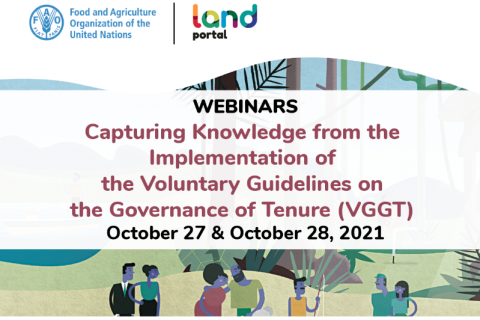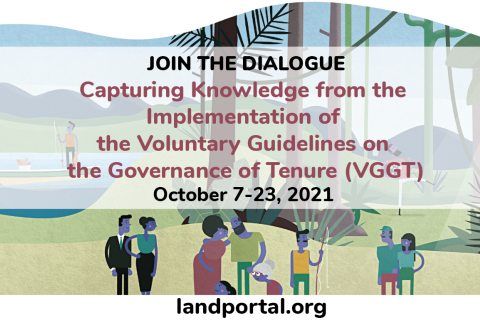When the VGGT were endorsed, the environment was ripe for such an instrument as the world was facing a significant number of challenges regarding governance of tenure. For example, the world was facing challenges in terms of land based investments. There was an increase in conflicts related to access to natural resources. Land governance was beginning to play a central role in socioeconomic development in many countries, especially in developing countries. When the discussion about the Voluntary Guidelines started it became evident that this would be the right instrument to promote food security, encourage better livelihoods, and improve environmental sustainability. This made it easier for the VGGT to be generally accepted and endorsed by member states. The endorsement by member states of the UN was important as it empowered citizens and civil society to hold their governments accountable to their application.
In the application of the VGGT, there is a challenge to contextualize them and adapt them to address specific challenges that countries face, and this has been especially the case in Africa. In 2009, the African Union had already adopted a Declaration on land issues and challenges, and subsequently the Framework and Guidelines on Land Policy in Africa. There was therefore a need for a framework that would take into consideration these regional instruments in the implementation of the VGGT. This resulted in the development of a Strategic Framework for Integrated Application of the VGGT and Framework and Guidelines on Land Policy in Africa.
Following the endorsement of the VGGT in 2012, the VGGT umbrella program was developed to support their implementation to achieve food security, eradicate hunger and poverty, and improve livelihoods. The design of the program was to address five key areas.- awareness raising, capacity development, technical support to countries, strengthening partnerships to increase collaborative actions at global, regional and national levels, monitoring of VGGT implementation. Awareness raising on the VGGT was particularly important as a starting point and this was supported by country level projects to demonstrate the usefulness of VGGT principles. The production of capacity development tools in the form of technical guides which cover several thematic areas related to governance of tenure made it easier for countries to apply VGGT principles and contextualise them and integrate into country level policy processes.
A major part of this program was developing collaborative partnerships for lasting impacts in Africa. We developed a strong collaborative partnership with the African Land Policy Center, which is an initiative of the African Union, the Economic Commission for Africa and the African Development Bank. The partnership promoted the integrated application of VGGT and the Framework and Guidelines on Land Policy in Africa to support the implementation of the African Union Declaration on Land Issues and Challenges.
Another major component of this program was the application of the VGGT in the Mekong region, which covered four countries - Myanmar, Vietnam, Lao People's Democratic Republic, and Cambodia. The main focus was recognition of customary rights as a vehicle for ensuring that investments in land are not detrimental to livelihoods. Most of the technical guides were translated through this process into local languages, and other learning programs supported the recognition of customary land rights as a basis for promoting safeguards in investments.
In Colombia, we built land governance into the peacebuilding process. Land governance proved to be an instrument for sustainable peace.
In terms of lessons learned, this program has taught us that: we need to build goodwill and trust within governments, and establish alliances with governments through multi stakeholder processes or platforms to ensure that governments understand us and can accept to take on board the principles of the VGGT. This program has had a positive impact, but the beneficiary countries expect longer-term and more sustainable engagement for them to really realize the full potential of the VGGT. With the complexities and sensitivities surrounding land governance, bringing about change will take a long time. We recognize that FAO is well-situated, with decentralized offices across the world, and at the country level, to drive this process.





